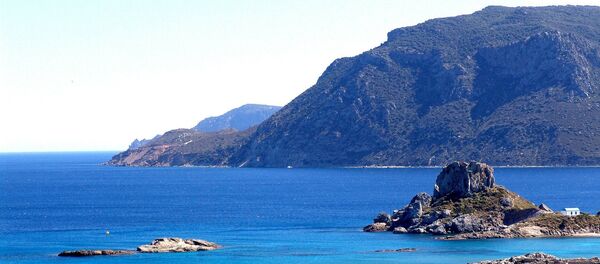Reports have streamed in over the past week that a Turkish naval vessel was menacingly circling around disputed islets in what many interpreted as blatant intimidation and warmongering. The historical dispute between Athens and Ankara over these territories predates the establishment of Turkey as a country and occasionally flares up to the forefront of regional politics. This time around, however, there’s a lot more bubbling below the surface than initially meets the eye.
An additional bone of contention between the longstanding regional rivals is the immigrant deal signed between Ankara and Brussels last year, which some experts believe could be endangered by the present bilateral dispute between Turkey and Greece. The weather is about to warm up in the coming months and create favorable conditions for large-scale illegal migration to Europe. Knowing this, Turkey might hold out the deal that it reached with the EU as a bargaining chip in pressuring Brussels to force Athens to make concessions. There’s also the larger trend of Turkey becoming more independently assertive in general under President Erdogan, be it through the unprecedented consolidation of executive power, its decisive pivot towards Russia and Iran following the coup, or its recent game of hardball with the West.
Given this visible trajectory, the recent Greek-Turkish naval tensions begin to look like part of a bigger power play representing ambitions much grander than the desire to command a few tiny islands off the Anatolian coast.
To discuss this issue in more detail, we are happy to be joined by Serap Balaman, Turkish political commentator and Evans Agelissopoulos, Greek political commentator.
Want to sound off and share what you think about this? Send us an email at radio@sputniknews.com
Have you heard the news? Sign up to our Telegram channel and we'll keep you up to speed!


